
10 Important Japanese Phrases to Know Before You Enter a Japanese Convenience Store
- Written by: Teni Wada
Navigating Japan's convenience stores, or “konbini”, is key to a smooth trip. More than just a place for snacks, these hubs offer vital services like ATMs, ticket sales, and package delivery. To make your next visit a breeze, we've compiled 10 essential Japanese phrases to help you confidently handle any transaction.
You might be already aware of phrases like irasshaimase (“Welcome”), arigatou gozaimasu (“Thank you very much”), and moushi wake gozaimasen (“I’m terribly sorry”), but have you ever wondered about the other phrases that convenience store staff say? A bonus list of response phrases follows at the end of this column.
(Photo credit (main image): Ned Snowman / Shutterstock.com)
- Table of Contents
-
- Konbini in Japan
- At the Convenience Store
- 1. Next in line please!
- 2. Do you have a point card?
- 3. Please press the button.
- 4. Would you like for your food to be warmed?
- 5. Please wait.
- 6. Thank you for waiting.
- 7. Would you like a spoon/fork/chopsticks?
- 8. Would you like these items bagged separately?
- 9. Would you like a bag?
- 10. Is it enough with a sticker?
- Bonus: How to Respond to Convenience Store Staff
Konbini in Japan

Known as “konbini” in Japanese, convenience stores are an integral part of Japanese life. As of summer 2025, there are around 56,000 convenience stores in Japan.
To say that convenience stores are “convenient” is an understatement that does not even begin to encompass all the services that facilitate life in Japan. From buying concert tickets to offering all-in-one copy/fax/print machines (that can also print photos), to being able to pay your utilities, sending and picking up parcels, not to mention being able to shop late night or early morning, your local convenience store has you covered.
Convenience stores are also unique in that staff interaction with customers is extremely simplified, allowing for an expedited shopping experience. However, there are times when staff may talk to you, which may lead to confusion if you are not familiar with the Japanese language.
At the Convenience Store

You’ve walked around the store in awe of all the limited edition goodies and unique drinks and snacks. After much debate, you pick up a can of beer, a bento, a salad and a dessert featuring seasonal ingredients. Now it’s time to head to the register.
Convenience stores can get pretty crowded during peak hours, so many stores have stickers on the floor indicating where to stand. As you wait in line, your eyes wander around, searching the brightly-lit shelves for something to add in your basket when you hear the clerk calling...
1. Next in line please!
- Meaning: Next in line please!
Alternatively, you may hear 次でお待ちの方 (Tsugi de omachi no kata), but the meaning remains the same. The clerk calling you will have their arm raised so that you can easily identify them and the appropriate register. Sometimes in large convenience stores, multiple registers are open, and a clerk might call you to a register at the far end. That can be easy to miss, so be sure to pay attention to where the staff is directing you.
2. Do you have a point card?

- Meaning: Do you have a point card?
Before the staff scans your items, they will ask if you have a point card. What is a point card, you ask? It is a way for customers to be rewarded for their loyalty by receiving points for every 100 or 200 yen spent. If you don’t have one, and intend to be in Japan for a while, consider signing up—if you go to the same convenience store chain regularly, you’ll easily amass points, which you can use for future purchases.
Popular cards like V-Point (at FamilyMart) and Ponta (at Lawson) can be issued directly at the register or through their mobile apps, allowing you to start earning points right away.
3. Please press the button.

- Meaning: Please press the button.
You will hear this phrase if you’ve come to the convenience store to pick up a pack of cigarettes or a can of beer. It is very rare that staff ask for photo ID when you are purchasing alcohol or tobacco products. Instead, they require that you confirm your age by using the touch screen monitor. Keep in mind that the age from which one may buy alcohol and tobacco products in Japan is 20. Alternatively, you may hear: 年齢確認ボタンを押してください / nen rei kakunin botan wo oshite kudasai - Please press the age confirmation button on the screen.
4. Would you like for your food to be warmed?

- Meaning: Would you like for your food to be warmed?
For certain bento boxes, soups, or snack items, staff will ask if you would like your food to be heated. You might think that microwaving your meal will take time, but remember, the Japanese convenience store is all about, well, convenience. The high-powered microwaves can fully warm your meal in under 20 seconds. As you wait for your meal to be warmed, please move to the side so that the next customer can be served. You may notice that your warmed meal comes in a brown colored plastic bag: brown bags are used exclusively for warmed products as they are more heat-resistant.
5. Please wait.

- Meaning: Please wait.
You will hear this phrase if you order a hot snack, tobacco products, to get your meal warmed up, or any action which causes staff to temporarily step away from the register. Make sure to be mindful about people around you - if there are others lined up behind you, you may need to step aside so that they can access the register while you wait.
6. Thank you for waiting.
- Meaning: Thank you for waiting.
Once the staff has returned to the register, they will use this phrase to show appreciation for your patience.
7. Would you like a spoon/fork/chopsticks?

- Meaning: Would you like a spoon/fork/chopsticks?
Now that you’ve got your bento, what type of utensil will you use? Do not be alarmed or offended if staff ask you if you would like a fork or spoon with your rice-based meal. Staff ask this question of all customers, regardless of appearance. Here’s how to respond to this question:
- If you want what they offered:
- はい、お願いします (hai, onegai shimasu)
- For chopsticks specifically:
- お箸をお願いします (ohashi wo onegai shimasu)
- For a spoon specifically:
- スプーンをお願いします (supu-n wo onegai shimasu)
- For a fork specifically:
- フォークをお願いします (fo-ku wo onegai shimasu)
- If you don't need any:
- 大丈夫です (daijoubu desu) or いいえ、結構です (iie, kekkou desu)
For some convenience stores, it is customary to attach the disposable utensils to the bento lid with tape; other convenience stores simply place them in the bottom of your bag.
8. Would you like these items bagged separately?

- Meaning: Would you like these items bagged separately?
As a general rule, hot and cold food items are automatically separated at Japanese convenience stores. However, if you have, say a cold bottle of tea and a magazine, staff may ask if you would like your items separated so that condensation does not ruin your items. Likewise, people who purchase drinks and snacks along with household goods may not feel comfortable with chemicals being in the same bag as their food.
If you want to know how to answer this question, we have listed a few ways to accept and decline at the bottom of the article.
9. Would you like a bag?
- Meaning: Would you like a bag?
For single items like a canned drink or pack of gum that may not appear to need a bag, a convenience store clerk may ask you if you need a bag. Japan is making great strides in cutting down waste, so using a sticker is an efficient way to keep plastic from entering landfills and bodies of water.
10. Is it enough with a sticker?
- Meaning: Is it enough with a sticker?
If you have declined a bag, staff will ask if it is OK to place a sticker on your items so that you are not mistaken for a shoplifter. Don’t get your hopes up that your “sticker” will be a kawaii anime character—it’s simply a small piece of tape with the store’s logo on it. If you get this question, answering with a simple はい、それで大丈夫です。 (Hai, sore de daijyoubu desu.) will suffice.
Bonus: How to Respond to Convenience Store Staff

Now that you know these phrases, check out all the different ways to say “yes,” “no,” and “thank you” in Japanese, just like a local!
- はい (hai)
- お願いします (onegai shimasu)
Note 大丈夫です (daijyoubu desu) may be translated as “It’s fine” or “OK”, but it can be interpreted as, “no thanks.” Using body language to nod or shake your head, or holding your hand up as a “stop sign” while using this phrase will make it easier for the staff to understand what you want. Keep this in mind when staff asks if you'd like a fork with your spaghetti—otherwise, you’ll be figuring out how to eat it with your hands!
- いいえ (iie)
- 大丈夫です (daijoubu desu)
- 結構です (kekkou desu)
No bag, thank you
Often, convenience and other stores will automatically bundle items into a plastic bag for takeaway. If you do not want a bag for your purchase, it’s easy enough to request staff for no bag (they will likely affix a sticker instead) with the phrase: そのままでください. / sonomama de kudasai.)
Thank you
Arigatou gozaimasu is standard for “thank you,” but some Japanese think that it feels awkwardly formal in the setting of a convenience store. Do as the locals and casually reply どうも (domo/Thanks) or simply nod your head before heading out.
Now that you know some commonly used phrases in Japanese convenience stores, you won't have to feel as nervous when approaching the cashier with your bentos, onigiris, and green tea. Come back to this article as much as you need to freshen your skills, and enjoy your trip to Japan!
American by birth, Japanese by choice, and traveler at heart, Teni Wada is a Tokyo-based content creator who enjoys browsing combini shelves for limited edition drinks and snacks. Find out more about her Tokyo life and travels over at Instagram.
*Prices and options mentioned are subject to change.
*Unless stated otherwise, all prices include tax.
Popular Tours & Activitiess
Recommended places for you
-

7-Eleven OTEMACHI NOMURA BLDG. Store
Convenience Stores
Tokyo Station
-
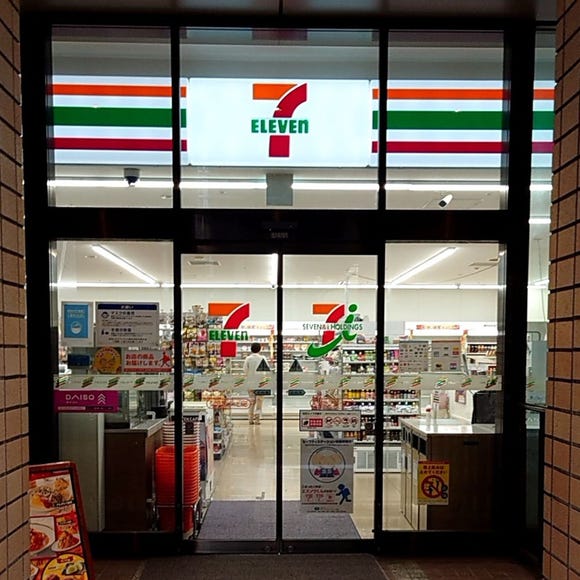
7-Eleven MARUNOUCHI CENTER BLDG. Store
Convenience Stores
Tokyo Station
-
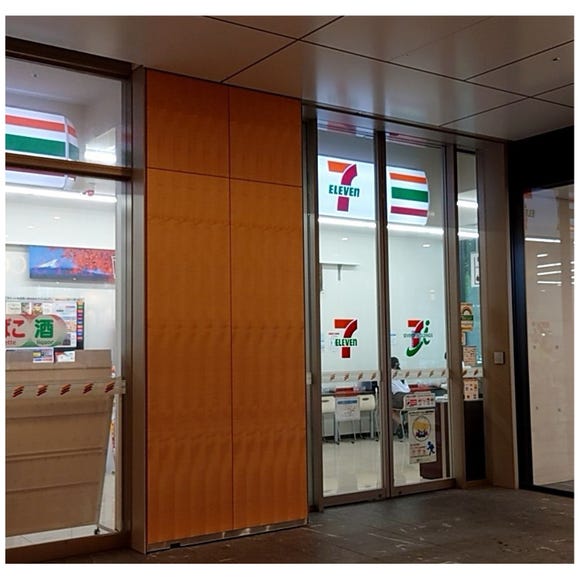
7-Eleven MARUNOUCHI NIJUBASHI BLDG. Store
Convenience Stores
Ginza
-
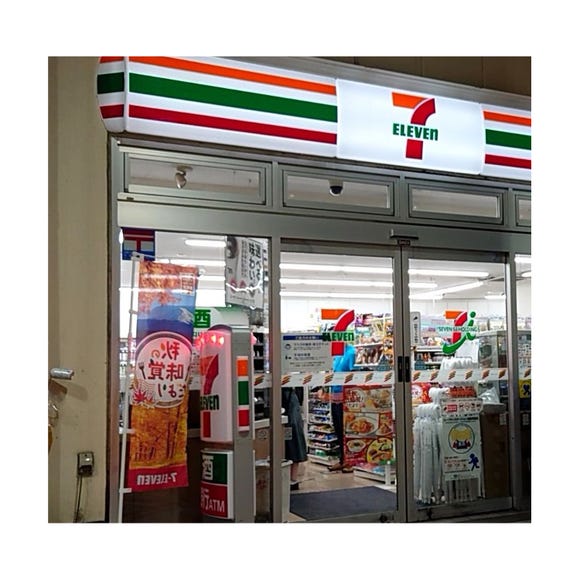
7-Eleven YURAKUCHOEKIMAE Store
Convenience Stores
Ginza
-
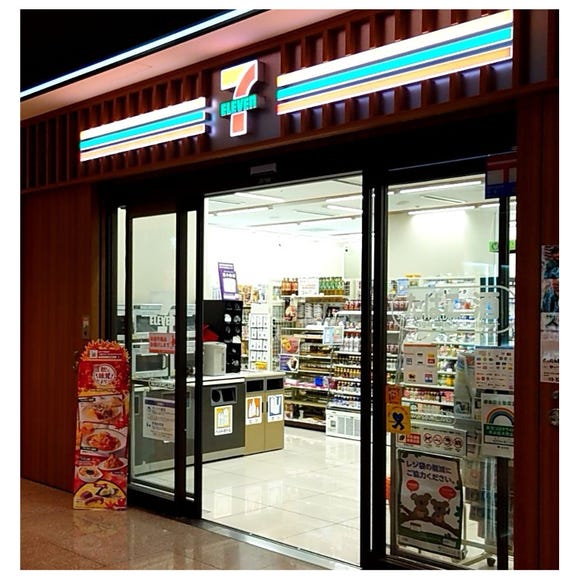
7-Eleven MARUNOUCHI EIRAKU BLDG. Store
Convenience Stores
Tokyo Station
-
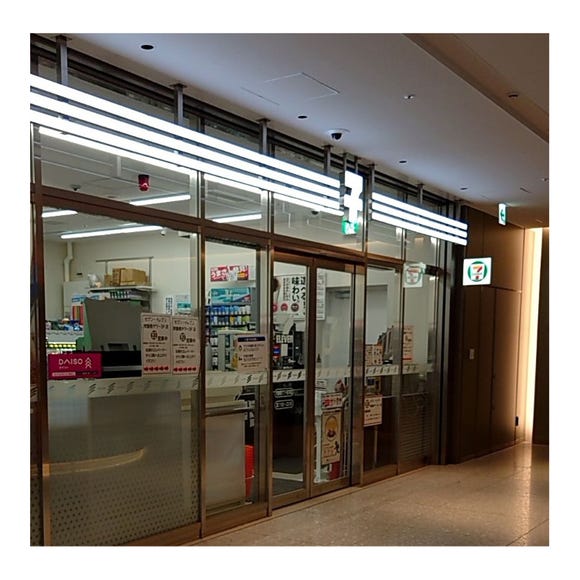
7-Eleven Tokiwabashi Tower B1F Store
Convenience Stores
Tokyo Station
-

PokéPark KANTO Is Finally Open! Tokyo's New Pokémon World Starts Before You Even Arrive (2026)
by: Guest Contributor
-
Ad

5 Recommended Wagyu Yakiniku Restaurants in Tokyo: Signature Dishes, Premium Beef, and Secret Sauces
-
Ad

What Makes Japanese Yakiniku So Darn Good? Guide to Cuts, Heat, and Wagyu Know-How
-
Ad

Japan’s Land of Yokai Monsters and Spooky Stories! A Deep Journey to Mysterious San’in (Tottori & Shimane) for Seasoned Travelers
-

Farewell, Heavy Suitcases! Keisei Ueno’s New Service Makes Your Last Day in Tokyo Totally Hands-Free
by: Guest Contributor
-

Top 3 OSHI MAPs for the Best Matcha and Sweets in Tokyo
by: Guest Contributor
-

Dining in Kyoto: Best Restaurants for Kaiseki, Sushi, Cafes & More
-

Niigata Bucket List: 26 Best Things to Do in Niigata Prefecture For Tourists (Attractions, Local Foods & Activities)
-

All That For Under $9?! Buying Lunch at a Convenience Store in Japan!
-

The Seicomart Phenomenon: Why Hokkaido's Convenience Store is Gaining So Much Popularity
-

More Than A Convenience Store?! 5 Exciting New Products and Unique Experiences at Seicomart!
-

16 Secrets About Mt. Fuji, the Symbol of Japan: Even Japanese People Don’t Know That?!
by: Guest Contributor
- #best sushi japan
- #what to do in odaiba
- #what to bring to japan
- #new years in tokyo
- #best ramen japan
- #what to buy in ameyoko
- #japanese nail trends
- #things to do japan
- #onsen tattoo friendly tokyo
- #daiso
- #best coffee japan
- #best japanese soft drinks
- #best yakiniku japan
- #japanese fashion culture
- #japanese convenience store snacks



















